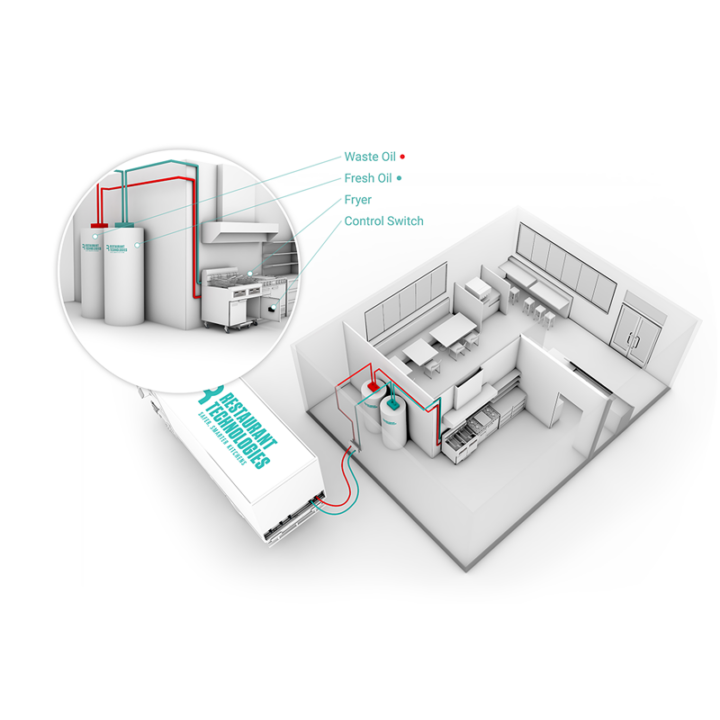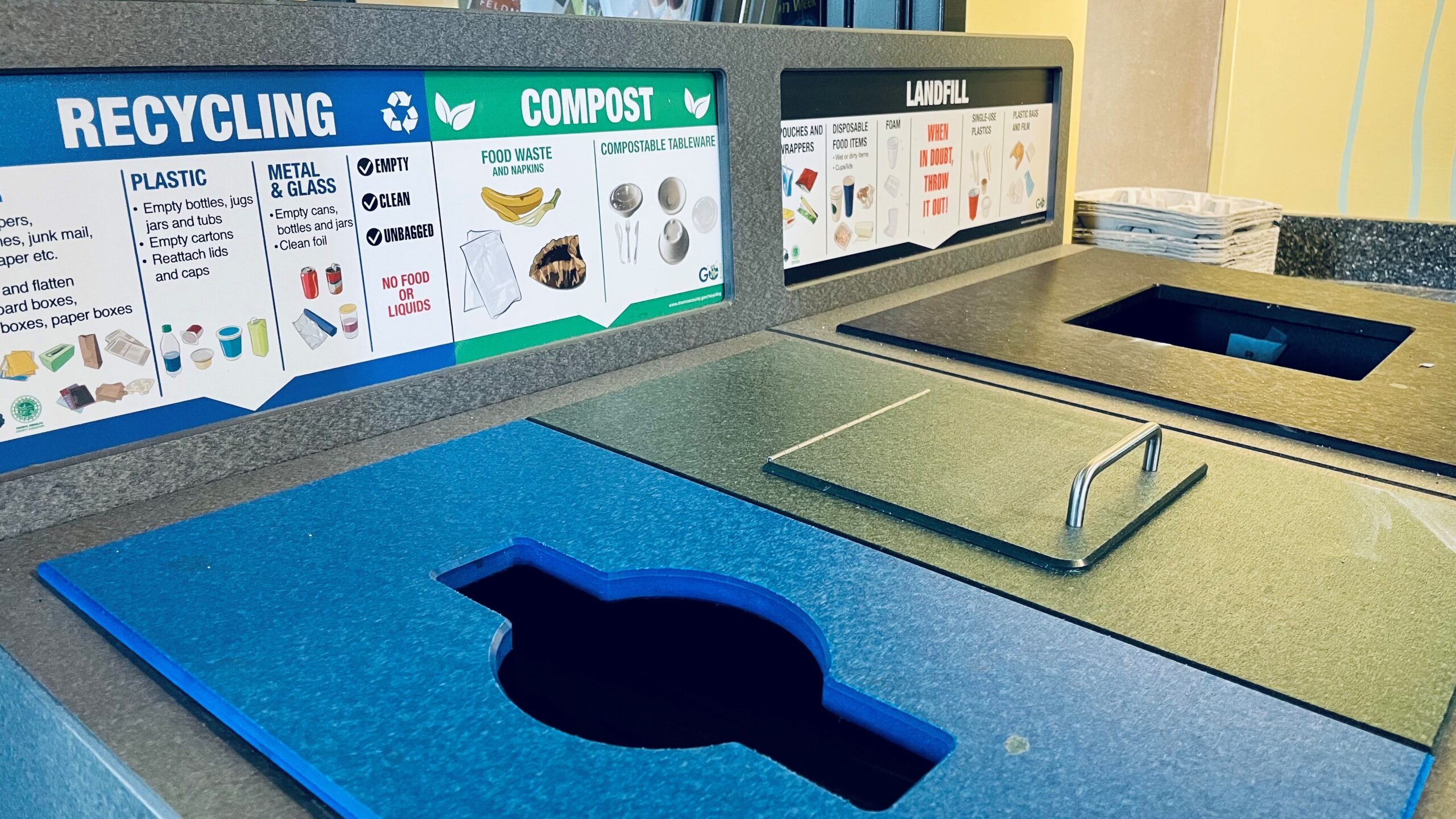From its ongoing program with the Food Recovery Network, to the expansion of its compost operations and a new process to recycle cooking oil, Campus Dining and Auxiliary Services is continuing and expanding its efforts to minimize waste. As Director of Retail Operations Bryan Carey puts it, “we are always looking for ways to mitigate waste.”
Oil recycling
Douglass Dining has partnered with Restaurant Tech—”a leading provider of cooking-oil management and…exhaust cleaning solutions to over 34,000 national…restaurants”—to hold an oil-management system in the kitchens. Rather than being received in a bag or box, Restaurant Tech sends cooking oil to Douglass in a bulk tank. The tank has a filtration system, which allows it to be usable for a longer period of time. Oil that can no longer be reused is given back to Restaurant Tech, who then repurposes it into biodiesel fuel. Biodiesels can be mixed in with conventional diesel to create a greener fuel that has a low carbon content and does not produce carbon monoxide. To see the process, refer to the picture below.
Carey states, “Restaurant Technologies has offered a turn-key oil management solution that not only helps improve our team-member safety in our kitchens, but helps reduce our carbon footprint by reducing packaging, prolonging the life of our fryer oil and allowing for the re-purposing of the oil into more sustainable fuel solutions. The program also offers metrics and data that our culinary teams use to track our usages and proper filtration. This allows us to continue to improve and make adjustments as necessary to our techniques and processes.”

Connection Café
This fall, a pilot program at the University’s Connections Café was launched. All dining locations collect pre-consumer food waste (a.k.a. kitchen scraps) and Douglass and Danforth also collect post-consumer food waste (a.k.a. plate scraps). Many students are not aware of these collections since they happen behind the scenes, in the kitchen and in the dish room. The new pilot program added a compost bin in the public area of Connections Café where students can put their post-consumer compostable material (pictured top). Carey states that the ultimate goal is to have post-consumer collection on all locations on campus. However, this process must happen in steps to ensure it can be managed properly without too much contamination. In fall 2023, we can expect another post-consumer program in another a small dining location.
Food recovery network
The Food Recovery Network aims to build a more sustainable planet and reduce food waste while improving access to food. On-campus satellite locations work with the Food Recovery Network to form a system in which excess edible food items are dropped off to people in need in the local Rochester community. So far this year 127 pounds of food has been donated through this partnership.
In closing, Carey mentions his work with Dining Team Green. Like Facilities Team Green, Dining Team Green is a group of student employees charged with supporting, expanding and communicating departmental efforts in sustainability. “I am proud of the partnership we have continued to develop with Team Green,” Carey says. “This has allowed us to explore creative strategies to reduce waste, increase our sustainability initiatives and work on collaborative events directly related to our daily operations. We are looking forward to growing this relationship and finding ways to even further our program in the future”.
By Lugardo Marroquin ‘24
Top Photo by Sarah Woodams

